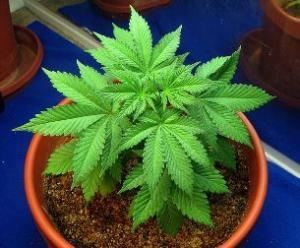Virginia lawmakers keep moving toward approving a legal marijuana marketplace, Hawaii lawmakers now have a pair of complementary marijuana legalization bills to ponder, and more.

Hawaii Attorney General's Marijuana Bill Now Filed in House and Senate. House Rep. David Tarnas (D) and Sen. Jarret Keohokalole (D) have introduced complementary marijuana legalization bills drafted by Attorney General Anne Lopez (D), House Bill 2600 and Senate Bill 3335. Both bills have substantial backing from lawmakers but face criticism from advocates.
The bills would allow people 21 and over to possess up to an ounce of weed and five grams of concentrates and allow for the home cultivation of up to six plants. The bills would also establish a Hawaii Cannabis Authority to regulate the industry, oversee licensing and impose a 10 percent tax on adult-use cannabis sales in addition to the state's 4 percent sales tax.
But they also contain provisions including new criminal penalties for minors that advocates see as excessively punitive.
"Legalization should mean fewer cannabis arrests, not more," said Karen O'Keefe, director of state policies for Marijuana Policy Project. Policy changes "should include the clearing of criminal records for cannabis and reinvestment in hard-hit communities. Instead, these bills ramp up cannabis-specific law enforcement and impose jail time for innocuous behavior that harms no one, including driving long after impairment wears off and having a previously opened jar of edibles in the passenger area of a car."
Virginia Marijuana Sales Bill Heads for House Floor Vote. In a vote of the whole House Friday, delegates laid the way for a final House floor vote on a bill that would create a retail marijuana market in the state, House Bill 698. The bill would allow current medical marijuana producers to begin selling adult-use marijuana on July 1 and require efforts to incubate marijuana microbusinesses for applicants with disadvantaged backgrounds.
"We only get one shot at rolling out a retail market in an orderly fashion and we have to get it right," said bill sponsor Del. Paul Krizek (D-Fairfax) while explaining his bill to the House.
A Senate bill to allow adult-use marijuana sales, Senate Bill 448, passed the upper house in January. That bill allows the issuing of retail licenses by July 1 but defers the advent of sales until January 1, 2025.
Both bills have grappled with finding a balance between competitive markets and promoting social equity, and both bills have been heavily amended in the process.
Washington Home Grown Bill Dies Without Ever Getting a Vote. The state is an outlier among legalization states because it does not allow for home cultivation, and it is going to stay that way for at least another year after a bill to allow home grows, House Bill 2194, died without a vote.
The bill had been assigned to the House Appropriations Committee but was not called for a vote before a February 5 deadline for bills to move out of financial committees. That means it is dead for this session.
Lawmakers have been trying to allow for home cultivation since 2015, to no avail.
Although the state legalized marijuana in 2012, growing marijuana without a medical marijuana card is a Class C felony, carrying up to five years in prison and up to $10,000 in fines.
Psychedelics
Massachusetts Therapeutic Psilocybin Bill Advances. The Joint Committee on Public Health has approved a bill, House Bill 3605, that would legalize psilocybin (the substance that puts the magic in magic mushrooms) for medical, therapeutic, and spiritual purposes.
Authored by Rep. Nicholas Boldyga (R), the bill would allow for the supervised use of psilocybin during sessions overseen "by a properly licensed facilitator."
The bill envisions the state Department of Public Health overseeing licensing of facilitators and the educational institutions training them. Facilitators would be required to undergo 20 and 300 hours of training from a licensed school, including at least 20 hours of in-person practice.
The bill has the support of Bay Staters for Natural Medicine and New Englanders for Plant Medicine. The bill now goes back to the House and Senate for floor votes in both chambers.
This work by StoptheDrugWar.org is licensed under Creative Commons Attribution-ShareAlike 4.0 International
Add new comment